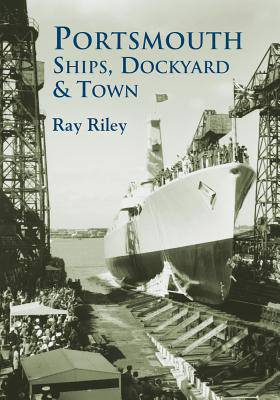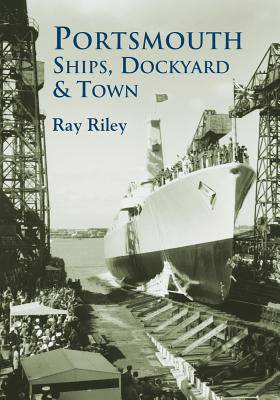
- Retrait gratuit dans votre magasin Club
- 7.000.000 titres dans notre catalogue
- Payer en toute sécurité
- Toujours un magasin près de chez vous
- Retrait gratuit dans votre magasin Club
- 7.000.0000 titres dans notre catalogue
- Payer en toute sécurité
- Toujours un magasin près de chez vous
18,45 €
+ 36 points
Description
For a long time Portsmouth has been known as a Dockyard town, and indeed until the 1980s, when the last great contraction of the yard took place, this was certainly the case. Portsmouth's original function was not so much that of a dockyard, since these did not exist, so much as a landing place for the convenience of dignitaries travelling between France and England, following the Norman conquest. Portsmouth's fortunes were closely linked to war and peace, rather than to the market considerations which governed most town's growth.In contrast to the efforts of the Dockyard, which around the turn of the century was one of the world's largest shipbuilding centres, Portsmouth's commercial shipbuilding sector was tiny. One possible reason for this stunted development was the control of the shoreline by the Admiralty, which was reluctant to sanction activities which might interfere with the movement of naval ships. Moreover, wthe Board of Ordance was not prepared to allow the fortifications to be breached by a railway line, making it difficult for the port at Old Portsmouth, known as the Camber, to grow. By the time the fortifications were razed int he 1870s, the railway companies did not consider it worthwhile to run a line to the Camber.Commercial shipbuilding and engineering might have been unimportant, but oddly enough for a port, the clothing industry was particularly well developed. In spite of the expansion of the Dockyard, in 1911, there were more than 10,000 people working in the manufacture of clothing, yet contemporary accounts of the town suggested that everything revolved around the building of Dreadnoughts.Inside the pages of Portsmouth - Ships, Dockyard and Town are over 200 images of the town's largest employers including the Dockyard, its associated industries adn the other industries of the town. They show a changed way of life that will never be replaced.
Spécifications
Parties prenantes
- Auteur(s) :
- Editeur:
Contenu
- Nombre de pages :
- 128
- Langue:
- Anglais
- Collection :
Caractéristiques
- EAN:
- 9780752427768
- Date de parution :
- 01-10-02
- Format:
- Livre broché
- Format numérique:
- Trade paperback (VS)
- Dimensions :
- 163 mm x 231 mm
- Poids :
- 294 g

Les avis
Nous publions uniquement les avis qui respectent les conditions requises. Consultez nos conditions pour les avis.






